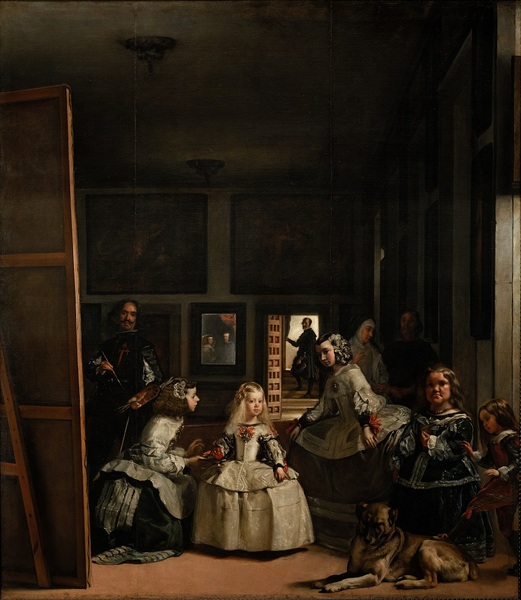Notions of Privacy and the Private at Early Modern Courts: Reflecting on the Challenges and Benefits of Research Approaches in the Study of Historical Privacy
 8. 10. 2024
,
14:00
8. 10. 2024
,
14:00  Historický ústav AV ČR, Prosecká 809/76, 190 00 Praha 9 a na Zoom
Historický ústav AV ČR, Prosecká 809/76, 190 00 Praha 9 a na Zoom 
Přednáška Notions of Privacy and the Private at Early Modern Courts: Reflecting on the Challenges and Benefits of Research Approaches in the Study of Historical Privacy, kterou předenese Dustin Neighbors, Ph.D. (University of Helsinki), se bude konat 8. října 2024 od 14:00 na Historickém ústavu AV ČR (Prosecká 809/76, 190 00 Praha 9) a prostřednictvím Zoom.
In June 1560, Elector August of Saxony (1526-1586) sent a letter to (Hans) Ungnad von Weißenwolf, Baron von Sonnegg (Sonneck) (1493-1564), urging Ungnad to avoid meeting him while he was hunting at Annaberg. August cautioned that the route to his hunting camp was “impassable” due to the rough terrain, that he did not have space to accommodate Ungnad and his entourage, and that he did not have enough sustenance for them. Furthermore, August indicated that he would be unavailable since he would be hunting on foot “in the forest from tomorrow morning until dusk”. Through the lens of privacy, this epistolary exchange highlights the various ways in which notions of privacy were historically expressed and how private dynamics were distinguished within court cultures. Given this, August’s letter highlights an interesting message; by telling Ungnad not to come was a way the Elector denied Ungnad political or personal access. Second, the indication of not having resources and supplies to accommodate a seemingly important figure signalled that August was hunting in seclusion and withdrawn from tending to the business of state. Finally, the letter reveals how hunting was not a ceremonial event involving many people but was at times a personal recreational pursuit that included a few trustworthy individuals, or perhaps, people with whom the Elector had a personal or informal relationship. In this letter, historical privacy correlates with access, seclusion, withdrawal and secret meetings.
With the recent publication of an edited collection on Notions of Privacy at Early Modern European Courts: Reassessing the Public/Private Divide, 1400-1800 (AUP, 2024), there is a scholarly discourse ranging from enthusiastic interest and preconceived scepticism related to research that brings together privacy and court studies. To spotlight this scholarly discourse on historical privacy, the lecture will consist of two parts – reflection and application. First, the lecture will share reflections on the discussions, both the difficulties and opportunities, especially during the course of producing the book, surrounding the study of historical privacy, the challenges of privacy studies, and methods of analysing privacy at court. The second part of the lecture aims to valorise the benefits of these research approaches and interdisciplinary perspectives by illustrating how they can be applied to examine historical privacy within court studies. For this, the lecture will incorporate a few case studies involving specific early modern European courts, including the Electoral court in sixteenth-century Saxony, and examples from the book. The impetus of reflecting on and discussing the application of privacy studies will be: a) to outline the scope and framework for analysing historical privacy that stem from the edited collection; and b) to demonstrate how these different approaches can deepen our understanding of both the theoretical underpinnings of courtly functions and court cultures, and the complex meanings, nuances and interrelations between early modern courts and wider societies. Consequently, this understanding is essential for comparative studies of early modern European courts and to tackle previously inaccessible aspects of these courts.
Dustin M. Neighbors, PhD, is a postdoctoral researcher and a project coordinator at the University of Helsinki, Finland, and the chair of the European Branch of the Society for Court Studies. His main areas of research are monarchy and court culture, with an emphasis on the performativity of gender, political and material culture, cultural practices and history (i.e. hunting) within sixteenth- and seventeenth-century Northern Europe, and the employment of digital research methods.
Organizace:
doc. PhDr. Dana Dvořáčková-Malá, Ph.D., Historický ústav AV ČR
Mgr. Bc. Zuzana Vařáková, Historický ústav AV ČR
Ing. Mgr. Michal Vokurka, Ph.D., Historický ústav AV ČR
Kontakt pro link na Zoom: varakova@hiu.cas.cz
 8. 10. 2024
,
14:00
8. 10. 2024
,
14:00  Historický ústav AV ČR, Prosecká 809/76, 190 00 Praha 9 a na Zoom
Historický ústav AV ČR, Prosecká 809/76, 190 00 Praha 9 a na Zoom 

